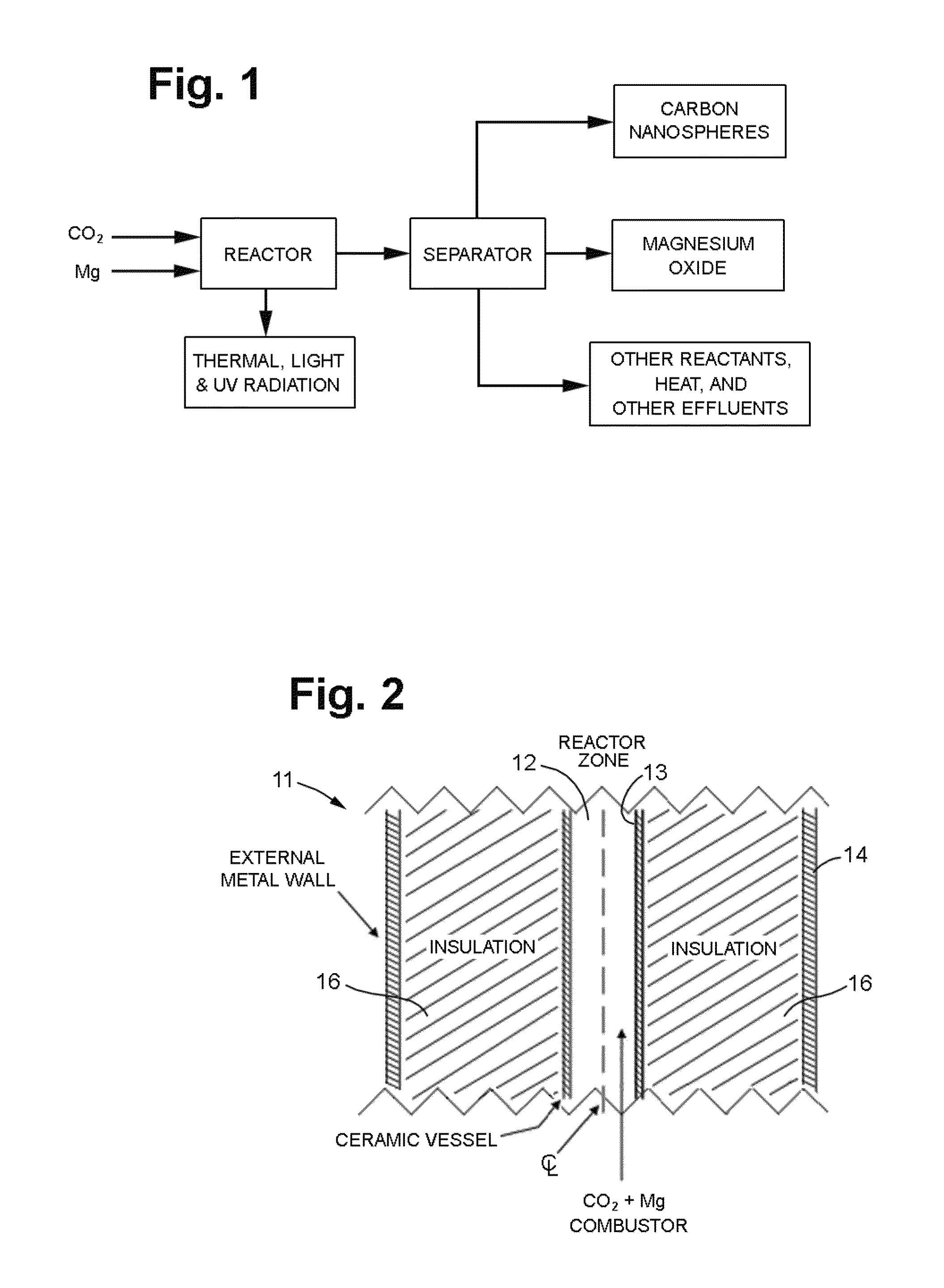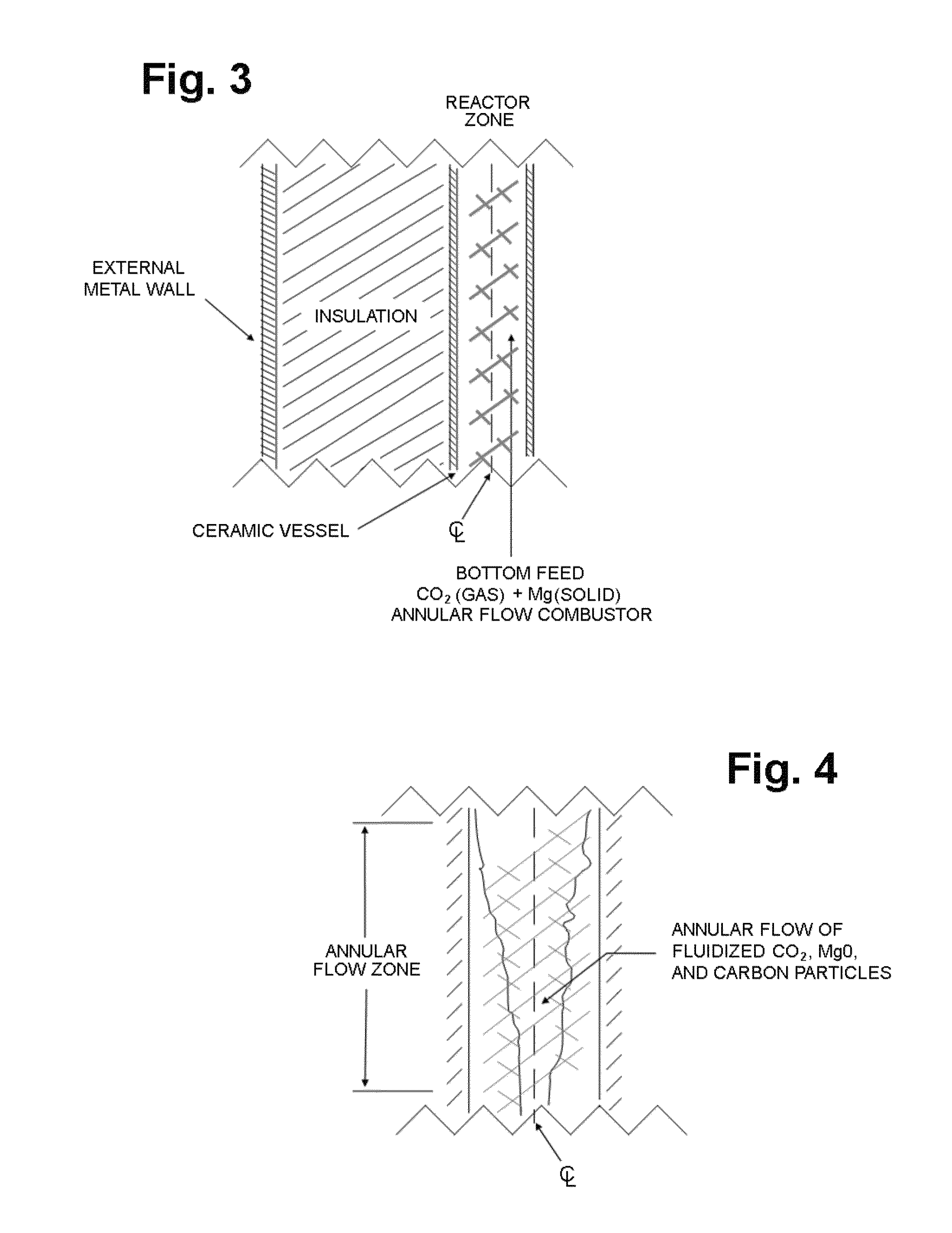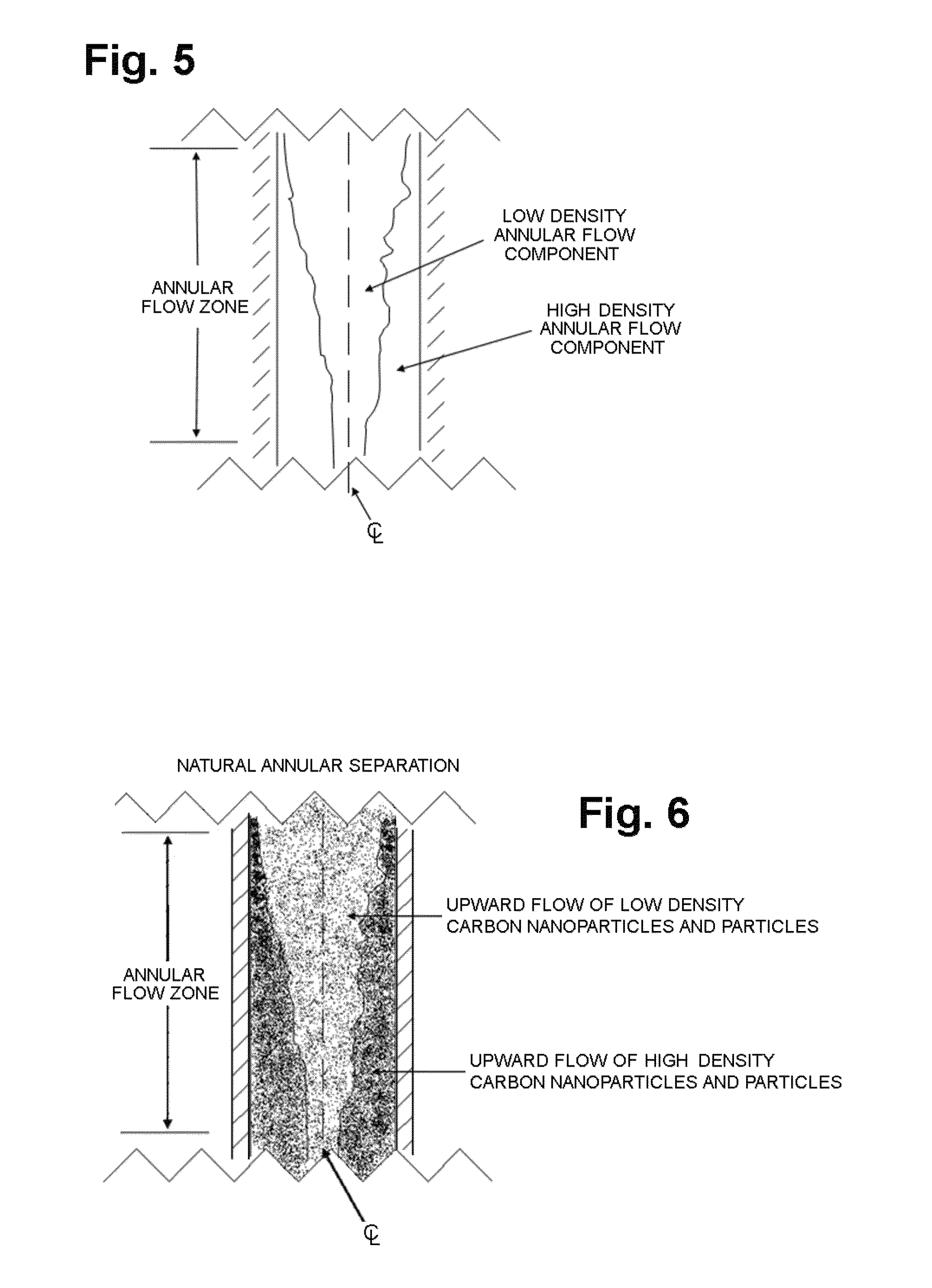Process for the production of carbon nanoparticles and sequestration of carbon
a technology of carbon nanoparticles and carbon sequestration, which is applied in the preparation of alkaline-earth metal aluminates/aluminium-oxide/aluminium-hydroxide, energy input, etc., can solve the problems of significant amount of energy required in any process involving the reduction of co2 to carbon, and the development of such applications has been severely hindered
- Summary
- Abstract
- Description
- Claims
- Application Information
AI Technical Summary
Benefits of technology
Problems solved by technology
Method used
Image
Examples
Embodiment Construction
[0019]In the process of the invention, CO2 is combusted or reduced with magnesium in a high temperature furnace to form various carbon morphologies or products, including hollow carbon nanospheres. As illustrated in FIG. 1, magnesium and CO2 are introduced into a reactor where combustion occurs, producing a heterogeneous mixture of carbon nanospheres and magnesium oxide. The reaction takes place at temperatures on the order of 2000° F.-5000° F. and, as a result, also produces intense amounts of high temperature, infrared, light and ultraviolet radiation which can be captured and utilized. The carbon nanospheres and other carbon products are separated from the magnesium oxide and from any reaction by-products that may be present, and heat from the separator is recovered.
[0020]The temperature of reaction can be varied to control the morphology of the hollow carbon nanospheres that are produced. The diameter of the nanospheres can thus be adjusted from about 2 nm to at least 500 μm. If...
PUM
| Property | Measurement | Unit |
|---|---|---|
| temperature | aaaaa | aaaaa |
| temperatures | aaaaa | aaaaa |
| diameter | aaaaa | aaaaa |
Abstract
Description
Claims
Application Information
 Login to View More
Login to View More - R&D
- Intellectual Property
- Life Sciences
- Materials
- Tech Scout
- Unparalleled Data Quality
- Higher Quality Content
- 60% Fewer Hallucinations
Browse by: Latest US Patents, China's latest patents, Technical Efficacy Thesaurus, Application Domain, Technology Topic, Popular Technical Reports.
© 2025 PatSnap. All rights reserved.Legal|Privacy policy|Modern Slavery Act Transparency Statement|Sitemap|About US| Contact US: help@patsnap.com



